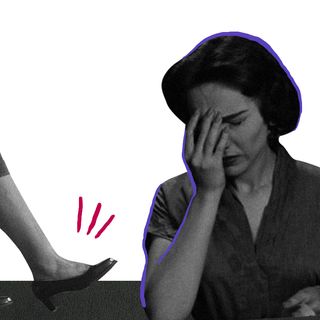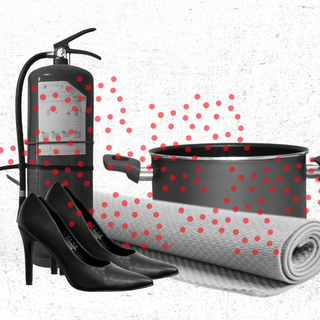One’s ability to process internal stimuli within their body is linked to how they perceive their body’s outward appearance to be, according to a new study.
“Interoception” is the perception of sensations from inside the body — like thirst, hunger, or satiety, the sensation of breathing, feeling hot, cold, or itchy, or sensing one’s own heartbeat. These internal stimuli are processed unconsciously and update the brain with information about the body’s state. “Body image,” on the other hand, is defined by the study authors as one’s “appearance-related perceptions, affect, and cognition.”
Published in Cortex, the study found weaker processing of internal stimuli from one’s body was linked to poorer body image in people — resulting in them being more preoccupied with their weight or experiencing shame about their appearance.
First, the researchers gathered people’s assessments of their own bodies. Then, they performed tests to measure the participants’ brains’ responses to their own heartbeats, as well as the connections between their guts and brains.
“We experience our body both from the inside and out: we can be aware of how our skin and limbs look, but also of how hungry we feel or how strongly our heart is beating during exercise. The brain also continuously processes internal signals that we are not conscious of… We found that when the brain is less responsive to these implicit signals from inside the body, individuals are more likely to hold negative views about their external bodily appearance,” Jane Aspell, associate professor of cognitive neuroscience at Anglia Ruskin University in Cambridge and co-author of the study, said in a statement.
Related on The Swaddle:
People With Anxiety, Eating Disorders Interpret Body Sensations Differently: Study
Attempting to explain the rationale behind their conclusion, Aspell hypothesized: “It may be that when the brain has a weaker connection to the internal body, the brain puts more emphasis on the external body and so appearance becomes much more important for self-evaluation.”
The researchers believe their findings can be used to design innovative methods for both treatment and diagnostic of conditions associated with negative body image — like eating disorders. “The gut and heart signal measurements used in our study could potentially act as a biomarker to help identify, or even predict, negative body image and associated conditions… Additionally, by training people to become more aware of internal sensations, it might be possible to amplify these unconscious signals,” said Jennifer Todd, a postdoctoral research fellow at Aspell’s university, who led the study.
In the recent past, interoceptive abilities have been linked to mental health disorders too. In June, scientists found that interoception differed between individuals with mental health disorders and those belonging to the healthier set — with the “differences” manifesting in the form of “feeling uncomfortably full” in people living with eating disorders, or similarly, the feeling of one not “hav[ing] enough air” in panic disorders. Whether the findings of the two studies may be connected in some way, only future research can tell.
At present, the researchers are hoping to investigate why some people’s brains are better at detecting internal signals than others. “We expect it is partly due to differences in neuro-anatomical connections between the brain and internal organs, and this will be the subject of future research,” Todd noted.




